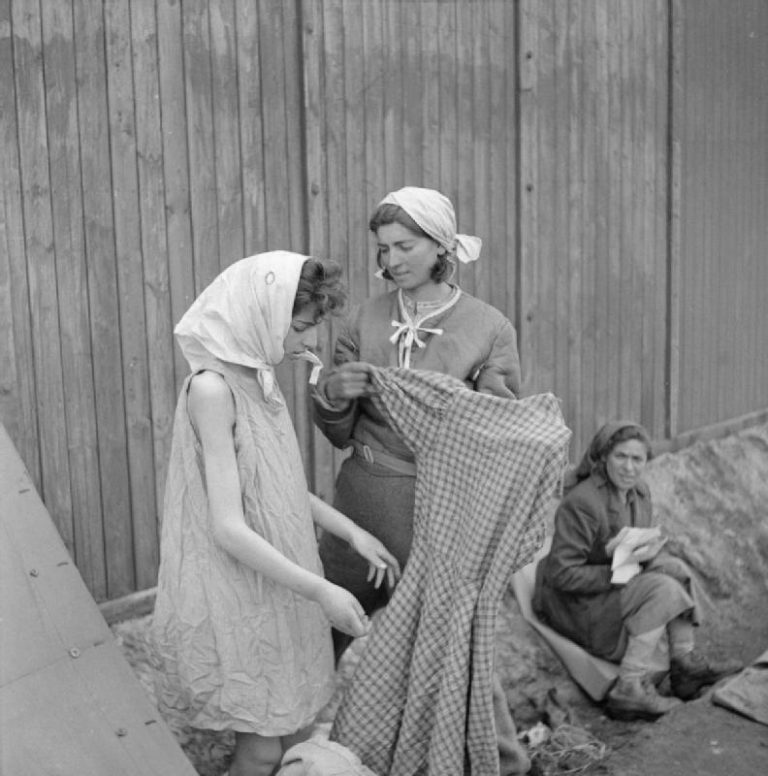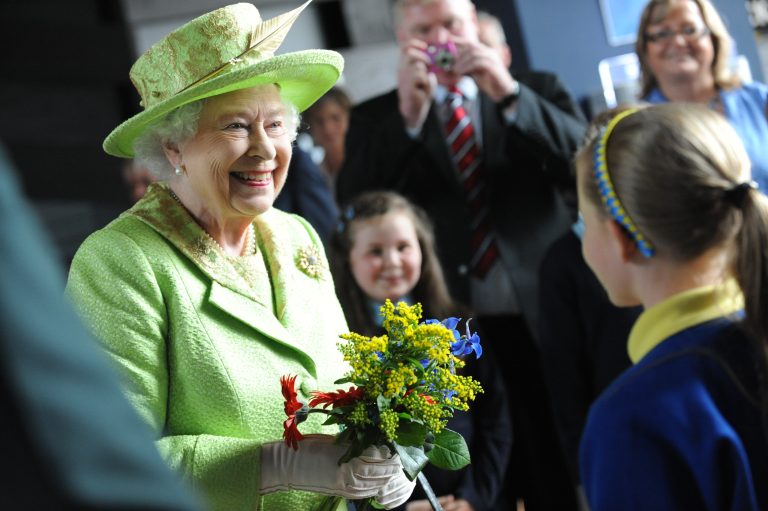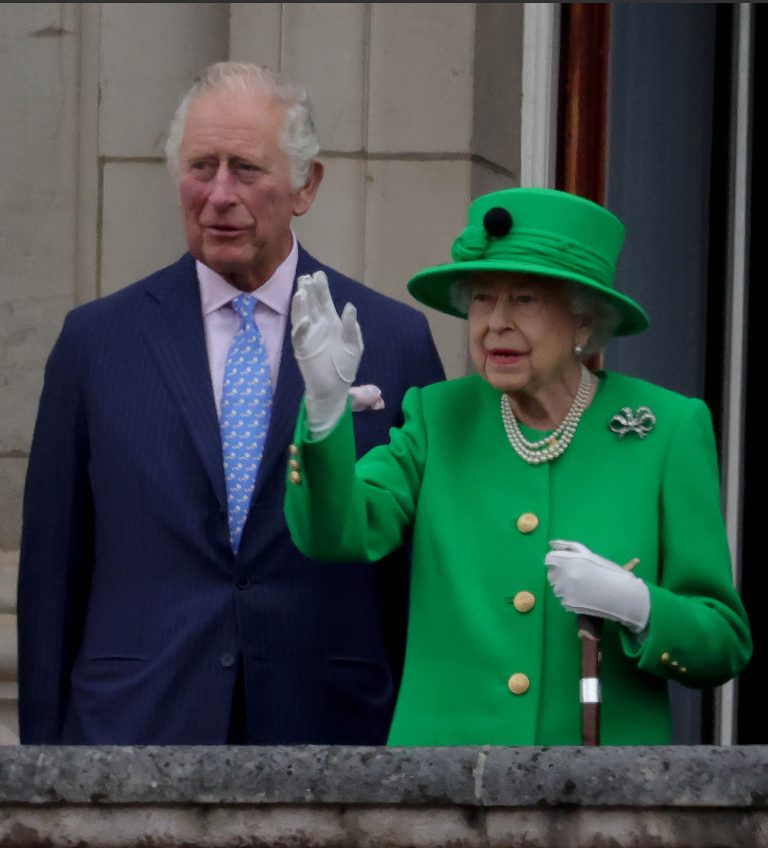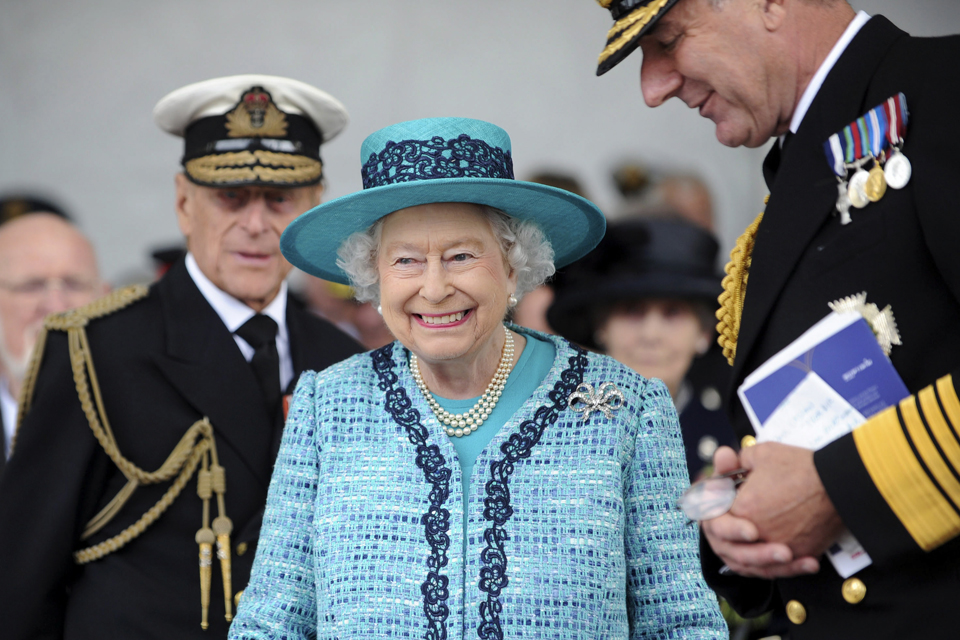Absent Yet Significant: The Late Queen’s Non-Visit to Israel
Queen Elizabeth II reigned for more than seven decades, leaving behind a legacy of careful diplomacy, unwavering duty, and a deep understanding of global relationships. Yet, one notable absence from her extensive travels, Israel, has long stood out as a point of intrigue and discussion. Despite visiting over 120 countries and traveling nearly a million miles during her lifetime, the late Queen never made an official visit to Israel. This decision, shaped by the complexities of history and diplomacy, offers a unique lens into her approach to navigating delicate international relationships and her role as a constitutional monarch.
Diplomatic Absences: A Delicate Balance
The late Queen Elizabeth II’s reign, spanning over seven decades, was guided by a steadfast commitment to diplomacy and neutrality. Her travels, which included visits to over 120 countries, were meticulously orchestrated to avoid political controversy. Yet her absence from Israel has sparked significant speculation and debate, with some interpreting it as a reflection of strained relations between the monarchy and the Jewish state.
The roots of this perceived distance date back to the British Mandate for Palestine (1920–1948), during which Britain played a pivotal role in shaping the region’s modern history. The Balfour Declaration of 1917 marked a critical turning point, expressing Britain’s support for a Jewish homeland in Palestine while simultaneously pledging to protect the rights of existing non-Jewish communities. This dual commitment placed Britain in the center of escalating tensions between Jewish and Arab populations, leaving a complex legacy of division and unrest.
The bombing of the King David Hotel in 1946, an attack orchestrated by members of the Irgun militia, remains one of the most significant and tragic events from this period. The hotel, which housed the British administrative headquarters, was targeted by attackers who planted explosives disguised in milk churns. The blast killed 91 people, including British military personnel, and left 45 injured. Among the dead were Royal Signals officers, including Captain A.D. Mackintosh, who was fatally shot while trying to prevent the attack. This event deeply shocked the British public and government, symbolizing the violent and contentious end of Britain’s presence in Palestine.

Aftermath of the King David Hotel Bombing, 1946, via Wikimedia Commons
According to Middle East Eye, some suggest that the absence of an official royal visit to Israel was influenced by Britain’s desire to avoid upsetting wealthy Gulf Arab nations, potentially jeopardizing important trade relationships. Additionally, the Queen reportedly remarked “What a depressing map” after viewing a depiction of illegal settlements in the West Bank, subtly acknowledging the complexities of the region. During a 1984 visit to Jordan, the Queen was said to have commented, “How frightening,” as Israeli fighter jets soared overhead while she looked toward the West Bank. Such moments underline the nuanced and careful stance she maintained throughout her reign.
Against this backdrop, comments by former Israeli President Reuven Rivlin at a recent gala commemorating 100 years of Haifa’s Technion Institute have drawn fresh attention. Rivlin characterized the late Queen’s relationship with Israel as “difficult.” He speculated that the Queen believed every Israeli “was either a terrorist or a son of a terrorist.” He further alleged that the late Queen Elizabeth II “refused to accept any Israeli official into Buckingham Palace, apart from international occasions,” while praising King Charles III for being “so friendly.”
Such statements contrast starkly with the late Queen’s extensive history of fostering strong relationships with Jewish communities in the United Kingdom. Israeli representatives attended her coronation in 1953, and she consistently demonstrated her commitment to Holocaust remembrance and respect for Jewish history. Rivlin’s remarks, which lack substantive corroboration, appear to reduce decades of nuanced diplomacy to an oversimplified narrative.
Humanitarian Legacy A Champion for Inclusion
The late Queen Elizabeth II’s lifelong dedication to humanity and inclusion often centered on supporting those who felt marginalized or forgotten. In her 2007 Christmas speech, she reminded the world of the importance of caring for those left on the edges of society when she said, “The Christmas story also draws attention to all those people who are on the edge of society, people who feel cut off and disadvantaged, people who, for one reason or another, are not able to enjoy the full benefits of living in a civilized and law-abiding community. For these people, the modern world can seem a distant and hostile place.”
Her words were matched by her actions. On January 27, 2005, the 60th anniversary of the liberation of Auschwitz, the late Queen hosted a group of Holocaust survivors at St. James’s Palace. Known for her punctuality, she broke protocol that day, staying well beyond her scheduled time to listen to each survivor’s story with unhurried attention.
Rabbi Lord Jonathan Sacks later described the moment: “She gave each survivor her focused, unhurried attention. She stood with each until they had finished telling their personal story. It was an act of kindness that had me in tears.” Survivors were equally moved, with one remarking, “Sixty years ago, I did not know if I would be alive tomorrow, and here I am today talking to the Queen.”
Moments like these highlight the late Queen’s deep commitment to compassion, remembrance, and reconciliation, values that defined her reign and her humanity.

A girl who is too weak to dress herself is helped by another woman during the
liberation of Bergen-Belsen Concentration Camp, 1945, via Wikimedia Commons
Bearing Witness to Humanity’s Darkest Chapter
In 2015, the late Queen Elizabeth II visited Bergen-Belsen, a former Nazi concentration camp in northwestern Germany liberated by British forces in 1945. This was her first visit to a concentration camp, and it was a deeply personal one, requested by the late Queen herself. Walking quietly through the grounds, accompanied by the late Prince Philip, she spent time reflecting on the atrocities that unfolded there and meeting Holocaust survivors and British veterans who helped liberate the camp.
The late Queen paused at several memorials, including one dedicated to Anne Frank and her sister Margot, who perished just weeks before the camp’s liberation. She also laid a wreath at an inscription wall honoring victims from all nations. Witnesses to her visit noted her visible emotional response, especially during conversations with survivors and liberators. Captain Eric “Winkle” Brown, one of the first British officers to enter the camp, described the horrors he encountered. “It was a field of corpses,” he said. The late Queen, visibly moved, replied softly, “It must have been horrific really.”
The visit was a powerful acknowledgment of Britain’s role in liberating the camp and a tribute to the 52,000 people who died there. Her time at Bergen-Belsen also underscored her belief in the importance of remembrance and ensuring that the atrocities of the Holocaust are never forgotten. Survivors and liberators described her presence as meaningful and profound, with Holocaust survivors recounting the solace they felt from her attentiveness and compassion.
Earlier that week, at a banquet in Berlin, the late Queen spoke about the importance of unity and avoiding division in Europe. Her visit to Bergen-Belsen further reinforced this message, demonstrating her commitment to reconciliation and her dedication to bridging history with the present. By meeting with young students showcasing a project on the camp’s history, she made it clear that preserving these stories for future generations was essential.
The Continuity of Values Charles’ Commitment to Peace
While the late Queen Elizabeth II never visited Israel, her son, King Charles III, has carried forward the family’s dedication to fostering understanding and reconciliation. In 2020, Charles visited the West Bank, expressing empathy for the struggles of Palestinians and a deep longing for unity in a divided world. Speaking at Bethlehem’s Church of the Nativity, he reflected on the hardships faced by the region’s communities, saying, “It breaks my heart that we continue to see so much suffering and division.”
Charles emphasized the importance of healing and hope, adding, “We must never rest in seeking to create mutual understanding and respect. We must tend the earth of our societies so that the seeds of division cannot take root and grow.”
His visit to Bethlehem highlighted his personal connection to the Holy Land, where he called for unity among people of different faiths and traditions. Quoting Psalm 133, he remarked, “Behold, how good and pleasant it is when brothers dwell in unity.” Charles’ words and actions echo the values his mother instilled, a dedication to inclusion, humanity, and the enduring hope for peace. His efforts show that the monarchy’s role in promoting dialogue and understanding remains strong.

Queen and Prince Philip visit to Titanic Belfast, by Titanic Belfast, 2012, CC BY SA 2.0, via Wikimedia Commons
The Late Queen’s Independent Spirit
Throughout her reign, the late Queen Elizabeth II demonstrated a steadfast commitment to balancing duty with principle, even in the face of complex global challenges. Her decisions, including her notable absence from Israel, reflected a nuanced understanding of her role as a constitutional monarch, guided by the need to maintain political neutrality while upholding her personal values.
Her 2007 Christmas speech captured her philosophy of leadership: “All the great religious teachings of the world press home the message that everyone has a responsibility to care for the vulnerable.” These words were more than symbolic; they were a guiding principle that shaped her actions throughout her life.
The late Queen’s ability to connect with individuals from all walks of life is illustrated by the story of Noé Patrel, a seven-year-old boy from Normandy. After seeing her sitting alone at the late Prince Philip’s funeral, Noé was so moved by her resilience that he wrote her a letter of condolence, expressing his admiration and sympathy. In a testament to her thoughtfulness, the late Queen responded with a signed card, “Elizabeth R,” thanking him for his kind words. This small but meaningful gesture brought immense joy to Noé, who now dreams of visiting England and meeting the Queen in person. His story touched many, showing how her kindness could inspire even the youngest admirers beyond Britain’s borders.
Whether through her public engagements, her private letters, or her quieter gestures, such as visiting Bergen-Belsen and meeting Holocaust survivors, the late Queen Elizabeth II upheld the values of inclusion, compassion, and connection. Her actions exemplified how leadership can reflect both strength and humanity, leaving behind a legacy defined by integrity and moral courage.
A Legacy of Humanity and Dignity
The late Queen Elizabeth II’s reign faced many challenges, yet her actions consistently reflected a deep commitment to fostering peace and understanding. Queen Elizabeth II’s diplomatic choices, including her absence from Israel, underscore her commitment to balancing the demands of duty with the principles of neutrality and reconciliation. Her actions revealed a deep respect for the complexities of international relationships and a desire to foster unity without inflaming existing tensions. Whether through her emphasis on compassion for the vulnerable, her unwavering focus on remembrance, or her careful navigation of politically sensitive issues, the late Queen demonstrated that effective diplomacy often lies in quiet, consistent advocacy for connection and peace.

Queen Elizabeth II and Prince Charles at the Queen’s II Platinum Jubilee,
by Andrew Parsons, 2022, CC BY SA 2.0, via Wikimedia Commons
As her son, then-Prince Charles, eloquently stated during his speech at the World Holocaust Forum at Yad Vashem in Jerusalem, “Every human being is be-tselem Elokim, in the image of God, and even a single human life is ke-olam malei, like an entire universe.” Later, during his speech in Bethlehem, he reminded humanity of the path we must all follow as expressed in the Sermon on the Mount, “Let your light so shine before others that they may see your good works and glorify your Father in Heaven.” He urged humanity to “ensure that our light shines before each other in the days and months ahead,” a sentiment deeply aligned with the late Queen’s enduring example.
Reflecting on her role, the late Queen Elizabeth once said, “It has always been easy to hate and destroy. To build and to cherish is much more difficult.” These words, from her 1957 Christmas Broadcast, capture the essence of her philosophy. Her quiet yet steadfast dedication to connection, dignity, and unity guided her leadership even amid the complexities of global diplomacy.
Elizabeth’s legacy is one of quiet advocacy for humanity, ensuring that the lessons of history serve as a beacon of hope and guidance for the future. Reflecting on her complex relationship with Israel reveals a broader dedication to inclusion, dignity, and the enduring hope for peace, a commitment that will continue to inspire for generations to come.





